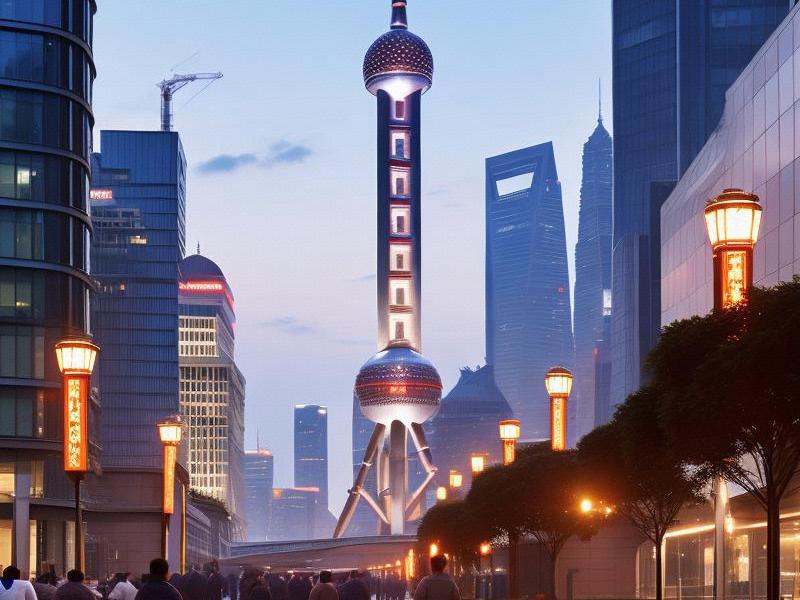This article delves into the remarkable transformation of Shanghai, a city that has emerged as a beacon of cultural renaissance and technological innovation. As one of the world's most dynamic metropolises, Shanghai's journey from a historic port city to a global hub is nothing short of extraordinary.

Shanghai, often referred to as the "Pearl of the Orient," has long been a symbol of China's economic and cultural prowess. Over the past few decades, the city has undergone a profound metamorphosis, blending its rich historical heritage with cutting-edge modernity. This dual identity is what makes Shanghai a unique case study in urban development and cultural preservation.
The city's cultural revival is evident in its vibrant arts scene. Shanghai has become a melting pot of traditional Chinese art and contemporary global culture. The Bund, once a symbol of colonial Shanghai, now hosts a series of art galleries and cultural centers. The Shanghai Museum, renowned for its extensive collection of ancient Chinese art, attracts millions of visitors annually. Additionally, the city's annual Shanghai International Film Festival has become a prestigious event, showcasing the latest in global cinema.
The city's commitment to cultural preservation is also reflected in its historic neighborhoods. The French Concession, with its charming cobblestone streets and colonial architecture, stands as a testament to Shanghai's colonial past. Similarly, the Yu Garden, a classical Chinese garden built in the Ming Dynasty, offers a glimpse into the city's rich history. These areas have been carefully preserved and restored, ensuring that future generations can appreciate Shanghai's cultural heritage.
Shanghai's technological innovation is equally impressive. The city has become a global leader in finance, technology, and logistics. Pudong, once a rural area on the outskirts of Shanghai, has transformed into a bustling financial district, home to the iconic Oriental Pearl Tower and the Shanghai Tower, the tallest building in China. The Lujiazui Financial District houses some of the world's largest banks and financial institutions, making it a key player in the global economy.
新上海龙凤419会所 The city's tech scene is thriving, with numerous startups and established companies investing in research and development. Zhangjiang Hi-Tech Park, often referred to as "China's Silicon Valley," is a hub for high-tech industries, including biotechnology, information technology, and new energy. The park has attracted top talent from around the world, fostering innovation and collaboration.
Shanghai's commitment to sustainability is also noteworthy. The city has implemented various initiatives to reduce its carbon footprint and promote green living. The Shanghai Green Roof Project, which encourages the installation of green roofs on buildings, has not only improved air quality but also provided a habitat for birds and insects. Additionally, the city has invested in public transportation, with the Shanghai Metro system serving millions of residents daily. The metro network is constantly expanding, providing efficient and environmentally friendly travel options.
The city's urban development is a testament to its forward-thinking approach. Shanghai has embraced smart city technologies, integrating digital solutions into its infrastructure. Smart traffic management systems, electronic toll collection, and intelligent lighting are just a few examples of how the city is leveraging technology to enhance the quality of life for its residents. The Shanghai Smart City initiative aims to crteeaa more connected, efficient, and sustainable urban environment.
Shanghai's transformation is not without challenges. As the city continues to grow, it must address issues such as housing affordability, traffic congestion, and environmental sustainability. However, the city's proactive approach to urban planning and innovation ensures that these challenges are met head-on.
上海龙凤论坛爱宝贝419
The role of government in Shanghai's revival cannot be overstated. The municipal government has implemented policies aimed at attracting investment, fostering innovation, and preserving cultural heritage. The Free-Trade Zone, established in 2013, has created a favorable business environment, encouraging foreign investment and trade. The government's support for the arts and culture has also played a crucial role in the city's cultural renaissance.
Shanghai's international collaborations further highlight its status as a global city. The city has established partnerships with numerous international organizations and cities, fostering cultural exchange and economic cooperation. The Shanghai Cooperation Organization (SCO), which includes China, Russia, and several Central Asian countries, promotes regional security and economic development. Shanghai's participation in global initiatives such as the Belt and Road Initiative underscores its commitment to international cooperation.
The city's educational institutions are also playing a vital role in its development. Fudan University and Tongji University, two of China's most prestigious universities, are located in Shanghai. These institutions attract students and researchers from around the world, contributing to the city's intellectual capital. The ShanghaiTech University, a collaboration between the Chinese Academy of Sciences and the city government, focuses on cutting-edge research in science and technology.
上海龙凤419会所 Shanghai's culinary scene is another aspect of its cultural revival. The city is renowned for its diverse and innovative cuisine, blending traditional Chinese flavors with international influences. From Michelin-starred restaurants to street food vendors, Shanghai offers a culinary experience like no other. The city's food culture reflects its cosmopolitan nature, making it a favorite destination for food lovers.
The city's nightlife is equally vibrant, with numerous bars, clubs, and live music venues catering to a diverse audience. The Bund and Nanjing Road, two of the city's most famous streets, are alive with activity after dark, offering a mix of entertainment and shopping. Shanghai's nightlife scene is a testament to the city's dynamic and inclusive culture.
In conclusion, Shanghai's journey from a historic port city to a global hub of cultural and technological innovation is a story of resilience, adaptability, and vision. The city's commitment to preserving its cultural heritage while embracing modernity has made it a model for urban development. As Shanghai continues to evolve, it remains a beacon of hope and inspiration for cities around the world.